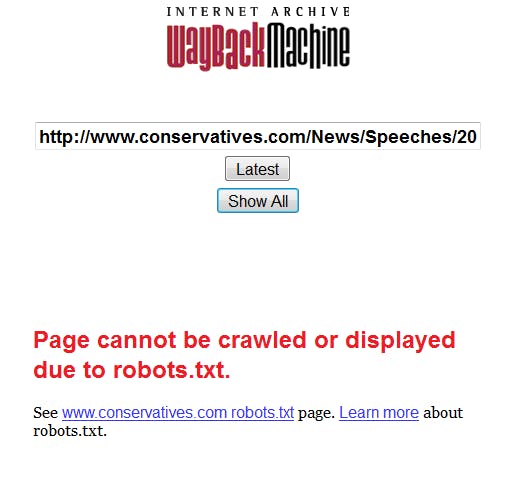Despite pledges in favor of government transparency, the British Conservative Party is facing accusations it has deleted a decade’s worth of public statements, not only from its own website, but from the Internet itself.
According to a report from Computer Weekly, all records of speeches and public statements between 2000 and the party’s election win in 2010 have been erased from search engines and the Internet Archive, making it very difficult to track many pre-election promises. As Computer Weekly phrased it, this could be “an effect as alarming as sending Men in Black to strip history books from a public library and burn them in the car park.”
When information is deleted from a website, it is generally still available via the Internet Archive. It’s a simple matter of copying the URL into the Archive’s Wayback Machine search engine, and backdating it to the desired timeframe. However, when you search the pages in question from the Conservative site, the Archive displays a message saying the page cannot be displayed due to robots.txt, which blocks deleted pages from the Archive.

Since the deletions were first reported, some of the speeches have reappeared on the site, although most remain unavailable.
Conservative Prime Minister David Cameron has previously spoken about his government’s dedication to information transparency. In an official YouTube video in 2011, he said, “Information is power, because it allows people to hold the powerful to account.”
In a statement to the press, a Conservative spokesperson explained that the information purges were just part of a recent website redesign, saying, “We’re making sure our website keeps the Conservative Party at the forefront of political campaigning. These changes allow people to quickly and easily access the most important information we provide.”
Photo via UKTI/Flickr


